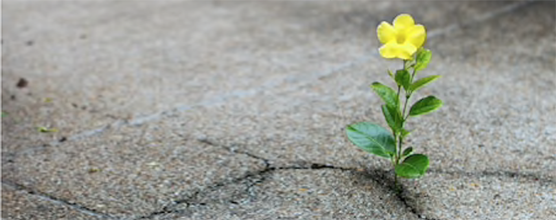
Whether it is Peter Bunting or Peter Philips re the leadership of their political party or anyone of us in our daily lives, all humans are creatures of hope.
But what really is hope? In a nutshell, hope is confident assurance about the ‘not yet’. Be that ‘not yet’ near (later today) or far (September or when the road repairs are done) we are all enmeshed in some degree of confident assurance about it. Be it about something simple or trite (crossing a road, expecting a salary cheque or bank upload of salary) significant and life-changing (surgery, promised promotion) none of us can truly avoid indulging hope in our lives.
Indeed, even the person who is planning to or commits suicide to put an end to his/her problems is indulging hope. He or she hopes death will end it all but what if there is an afterlife with rewards and punishments as some religionists claim?
Hope is fundamental in life but oh so fragile. Messrs. Bunting and Phillips in particular, should recall the fragility of political hope.
This was vividly illustrated in Jamaican political life more than once but classically in my view in October 1980 when the PNP campaigned on the mantra “150 thousand strong can’t be wrong” yet lost in a landslide defeat at the polls. Hope disappointed the PNP then as much as hope disappointed the JLP in December 2011.
Hope, necessary and fundamental but oh so fragile a commodity in life.
On February 11, 2011 the news broke that President Hosni Mubarak of Egypt had resigned, one day after he shocked protestors in Egypt by saying he would not step down from power and ‘would not be separated from Egyptian soil until his body was below the soil’. On what was his hope of remaining in power resting the day before i.e. February 10?
Whether you are religious, irreligious, a skeptic an atheist an agnostic or whatever, you are a creature of hope – a person who entertains confident assurance about a ‘not yet’.
What hope promises provides pleasure, but that hope might not deliver the goods promised produces an element of pain.
It is the guarantee or the guarantor that grounds your hope which determines whether your hope is just ‘blind optimism’ or ‘confident realism’.
While studying in England (1990-92) two interviews of national importance caught my attention. The one interview was with David Frost, sharp TV host and a Mr. Morley, Alexander Morley, I think, one of the moving forces behind the Channel Tunnel the proposed undersea rail tunnel linking Britain and France. The other interview involved Mrs. Margaret Thatcher, then Prime Minister.
The Thatcher interview was occasioned by rumours that Mrs. Thatcher was contemplating resignation as P.M. In response, Mrs. Thatcher said words to the effect, “I shall be around as P.M. for a long time.” In less than a week, she had resigned. Hope, built on the fragile support of her colleagues in Parliament, had disappointed her and for all I know up to her death she was still smarting from the pain of frustrated political hope.
In the other British incident David Frost was interviewing Alexander Morley in 1990 I think, and wanted an indication of the opening date for the Channel Tunnel. Mr. Morley very guardedly indicated that they were hoping for a 1993 start. Frost pressed for a more definite date and chided the element of hope in Morley’s reply to which Morley wisely replied, “We can only hope that by 1993 it will be functional but we can’t be sure. Are you sure you’ll be around in 1993?”
There is a folk tradition in Jamaica, maybe borrowed from elsewhere, which instructs that when you are alone in a dark area and afraid you should whistle or hum a song to keep your company. Not a sensible suggestion at all because you are still the only one there and attracting attention by the sound you are making.
I am mischievously eager to see how Mr. Bunting’s leadership challenge works out but I urge him, Dr. Phillips and all of us to give more serious thought to the double edge of hope. It is fundamental and fragile.
Rev. Clinton Chisholm, Academic Dean, Caribbean Graduate School of Theology
